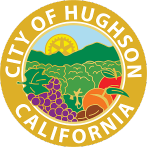WHAT IS STORM WATER POLLUTION?
Stormwater pollution comes from many sources. As rainwater and other runoff flows across the ground, they pick up harmful contaminants like fertilizers, pesticides and dirt. When the rainwater hits our streets, the water mixes with waste oil, automotive fluids and plant debris. Unlike the wastewater we put down our sinks and toilets, stormwater flows to our waterways untreated. This contaminates the water and can harm wildlife in our watershed.
Stormwater pollution is considered the most significant source of water pollution in our country. Past water pollution control efforts were directed at industrial sources and good progress has been made. Now, non-industrial activities impact water quality more than industrial operations.
STORMWATER MANAGEMENT PLAN
In compliance with state and federal requirements, the City of Hughson has developed a Stormwater Management Program committed to protecting our rivers by involving and educating our residents in stormwater pollution prevention, regulating stormwater runoff from construction sites, investigating non-stormwater discharges and reducing non-stormwater run-off from municipal operations.
You can access the City of Hughson’s Stormwater Management Program here. You may also contact Jose Vasquez, Public Works Superintendent.
RESTAURANTS AND COMMERCIAL KITCHENS
AVOID EXPENSIVE CLEANUP COSTS RELATED TO SEWER BLOCKAGES
Clean eating and drinking establishments are important to everyone. However, when not properly handled and managed, routine activities that keep businesses clean, or that assists in food production, can contribute to the pollution of our watersheds and the Delta. Pollution can harm aquatic habitats, human health, and ultimately can result in significant cleanup costs. Being a successful business and an environmentally responsible eating and drinking establishment go hand-in-hand.
Restaurants and commercial kitchens typically produce fats, oil, and grease (FOG) that when disposed improperly (e.g.; in kitchen sinks and toilets) can clog the sewer lines, causing sewer overflows into nearby homes, businesses or local waterways. Sewer systems and storm drain systems are not designed or equipped to handle the grease buildup from the fats, oils, and grease.
• FOG buildup in sewer lines can cause property damage, environmental problems, and other health hazards.
• Overflows impact public health, waterways and storm drains may result in expensive fines and cleanup costs.
• Overflows can result in expensive cleanup costs being assessed to the polluter
Thank you for being environmentally responsible and for keeping our region a desirable place for people to live and visit!
For additional information, contact the Public Works Department.
EMERGENCIES
Stormwater concerns or storm drain emergencies can be reported through See Click Fix and/or call 209-505-3049. For after business hours concerns or emergencies call 209-882-6200.
STORMWATER POLLUTION PREVENTION GUIDE
The City of Lodi is offering guides to automotive businesses and food establishments to help prevent stormwater pollution.
For additional information, contact the Public Works Department at 209-333-6740.
This guide is being provided as a tool to let you know that federal and state stormwater regulations now require many kinds of eating and drinking establishments to take steps to prevent stormwater pollution. Stormwater is one of the major source of pollutants in the San Joaquin creeks and rivers. By reading this training guide and educating yourself on what causes stormwater pollution you are on the right path to preventing it. Within this guide you will be introduced to Best Management Practices (BMPs) which are actions you, your managers and employees can take to prevent or reduce pollutants from leaving your business. By using this training guide, you can proactively help to protect our waterways.
